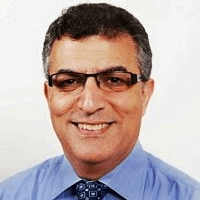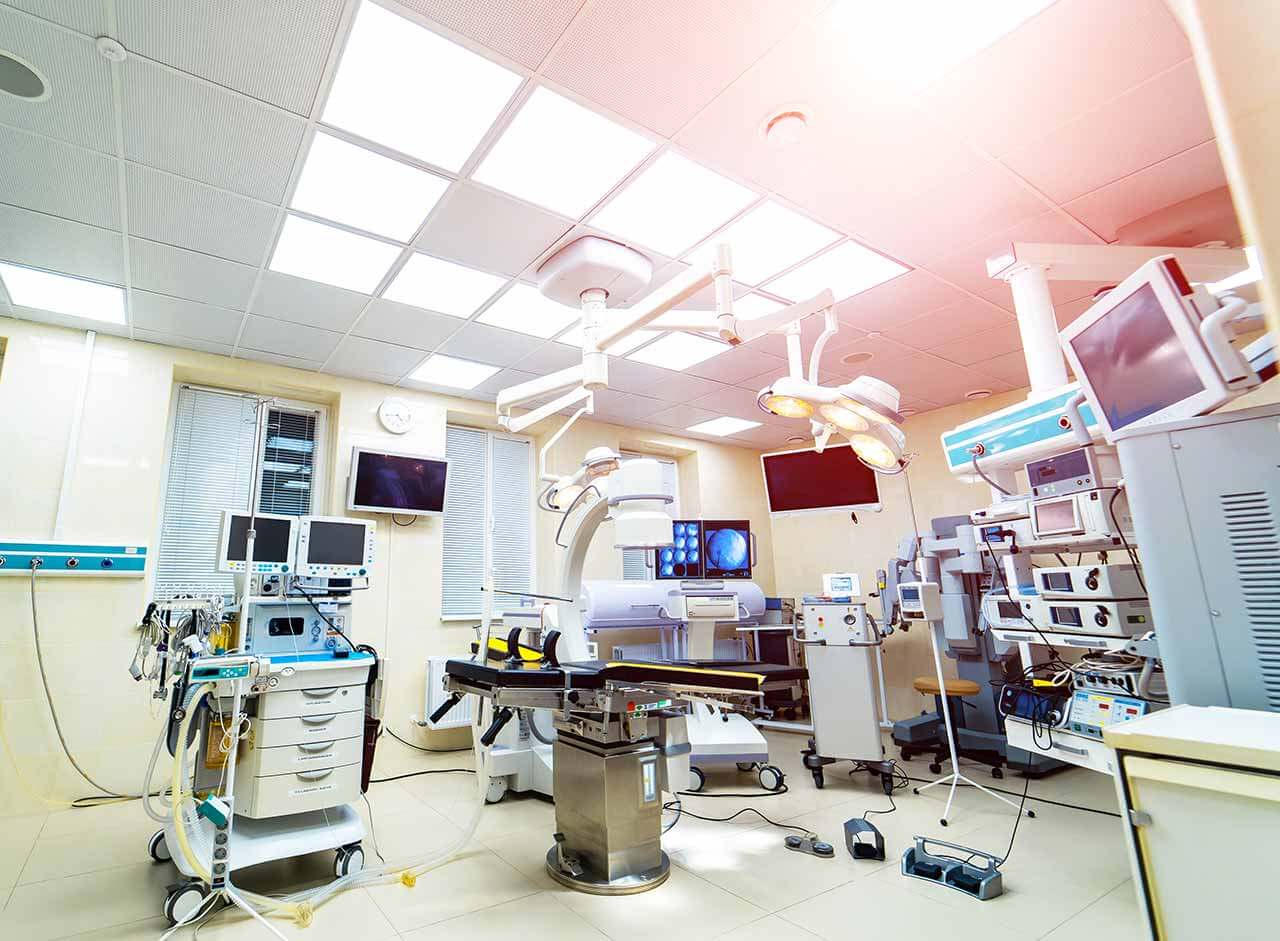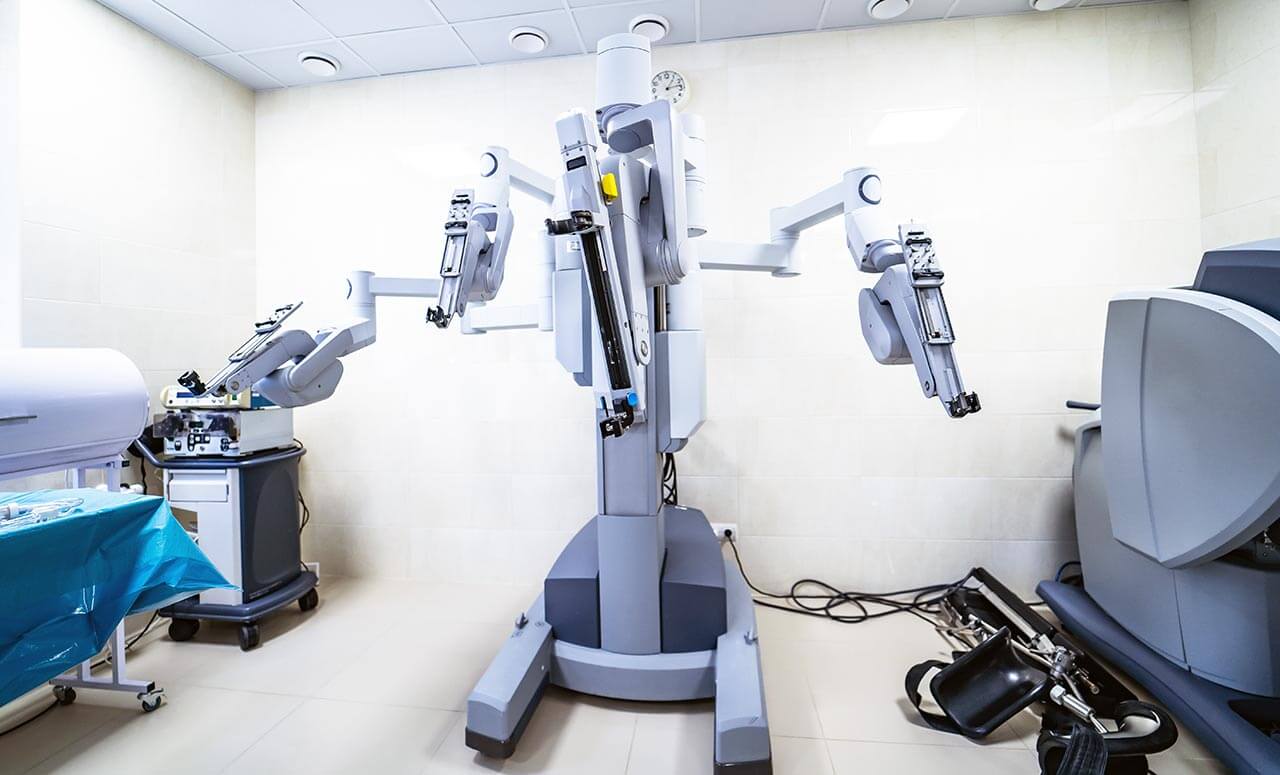
The program includes:
- Initial presentation in the clinic
- clinical history taking
- review of medical records
- physical examination
- laboratory tests:
- complete blood count
- biochemical blood analysis
- blood coagulation analysis (aPTT, PT, INR)
- inflammation indicators (CRP, ESR)
- metabolic analysis of blood
- kidney function test (creatinine, urea)
- color doppler echocardiography
- color doppler sonography of cerebral and peripheral vessels
- CT angiography (on indication 1300 €)
- MRI angiography (on indication 1900 €)
- nursing services
- consultation of related specialists
- consultation of the chief physician and all leading experts
- development of individual treatment plan
- written statement
Required documents
- Medical records
- X-ray examination (if available)
- MR/CT-angiography (if available)
Service
You may also book:
 BookingHealth Price from:
BookingHealth Price from:
About the department
The Department of Vascular Surgery and Transplantology at the Rambam Health Care Campus Haifa provides the accurate diagnostics and effective treatment of vascular diseases. In addition, the field of competence includes kidney transplantation from living and deceased donors as part of the treatment of patients with end-stage renal disease. The department has already performed more than 500 successful kidney transplantation operations. To provide patients with optimal medical care, the department uses the most advanced diagnostic and therapeutic methods, such as CT-, ultrasound- and MRI-guided operations. The department is headed by Prof. Dr. med. Tony Karram.
The priority areas of the department's specialization is the treatment of thoracic aortic aneurysms. The selection of the treatment method for aneurysm depends on its location, size and general health of the patient. In the case of asymptomatic small aneurysms, the doctors carry out an active monitoring, which consists of the control of the state of the aneurysm using CT or MRI every 6-12 months. The patient with high blood pressure will be prescribed antihypertensive medication therapy, which serves to relieve blood pressure on the affected aortic area. However, in the case of large aneurysms or aneurysms accompanied by severe clinical symptoms, the patient usually needs surgical treatment. The surgical procedure to remove thoracic aortic aneurysm can be carried out in different manners, such as the removal of the affected area of the vessel and its replacement by graft from synthetic material and endovascular treatment. The first option involves an intervention under general anesthesia with thoracotomy. During the endovascular operation, a catheter is inserted through a small incision into the femoral artery. Under the guidance of X-ray or computed tomography, the doctor introduces a catheter to the affected aortic area. Then he implants a stent in the area of the aneurysm. The endovascular approach is effectively used for the treatment of abdominal aortic aneurysm and descending thoracic aortic aneurysm. Obviously, the treatment technique is selected individually, taking into account the specific clinical case of each patient.
Also, the department's medical team shows excellent results in the treatment of varicose veins. When treating this pathology, the specialists prefer conservative and minimally invasive methods, which can be performed on an outpatient basis and do not require long-term follow-up recovery. For patients with uncomplicated varicose veins, the department's doctors recommend to change their lifestyle – to normalize weight, to abandon tight clothes, and also to avoid prolonged standing. An additional method, which helps to reduce leg pain and stop the progression of the disease, is compression underwear.
The department's range of medical services includes:
- Diagnostics and treatment of thoracic aortic aneurysms
- Diagnostics and treatment of varicose veins
- Sclerotherapy
- Foam sclerotherapy (the procedure involves the use of a special foam solution, which is injected into the deformed vessel)
- Laser correction of varicose veins
- Radiofrequency and laser ablation
- Ligation and removal of deformed veins
- Phlebectomy (on an outpatient basis)
- Endoscopic vein surgery
- Diagnostics and treatment of carotid artery disease, including prosthetics for carotid stenosis
- Peripheral artery bypass
- Renal artery bypass
- Formation of shunts for dialysis
- Diagnostics and treatment of hyperhidrosis
- Kidney transplantation in the case of end-stage renal disease (from living and deceased donors)
- Other therapeutic options
Curriculum vitae
Dr. Tony Karram is an Attending Physician, Vascular Surgeon and Chief Physician of the Department of Vascular Surgery and Transplantology at the Rambam Health Care Campus Haifa. He specializes in both vascular and endovascular surgery, especially in carotid and aortic aneurysmal diseases, kidney transplantation, vascular access for hemodialysis patients (arteriovenous shunting) and varicose vein surgery.
Dr. Karram graduated with honors from the Rappaport Faculty of Medicine of the Technion (Israel Institute of Technology). He completed his internship and residency in General Surgery at the Western Galilee Regional Hospital and a clinical fellowship in Vascular Surgery at Rambam.
Dr. Karram also serves as an Assistant Professor in Vascular Surgery at the Rappaport Faculty of Medicine, where he has received numerous awards for excellence in medical education. He has actively participated in a wide range of clinical and basic research projects. His main research interests are mechanisms of sodium and water retention in experimental congestive heart failure, cardiac hypertrophy and remodeling, involvement of the endothelin system in regulation of blood flow and pathogenesis of hypertension and hemodynamic parameters in carotid artery disease and vascular trauma.
Photo of the doctor: (c) Rambam Health Care Campus Haifa
About hospital
The Rambam Health Care Campus Haifa is the largest and the most progressive hospital in Northern Israel. The medical center was founded in 1938 and nowadays is proud of its long history, rich and successful experience in providing comprehensive medical services in all medical fields. The hospital serves more than 2 million locals, as well as the members of the Israel Defense Forces, UN Peacekeeping Forces and the United States Sixth Fleet. The medical center houses 61 inpatient departments, 73 specialized departments, 10 medical institutes and 25 laboratories. It is also the clinical and academic base of the Technion – Israel Institute of Technology.
The medical center includes the Ruth Rappaport Children's Hospital. It is a multidisciplinary medical facility specializing in the diagnostics and treatment of various pathologies, including extremely rare ones, in children of all age groups.
The total number of employees in the medical facility is 4,000 (715 doctors and 1,407 nurses). Many doctors are world-famous in the field of their clinical specialty and participate in advanced research projects in order to offer new treatment methods not only to their patients, but also to the world community.
The medical center is a leader in the field of medical care in emergency cases with a large number of victims. In addition, the hospital is certified in accordance with the strict standards of the Joint Commission International (JCI).
During the long-term and successful clinical practice, the medical center has formed a clear vision of optimal medical support and system of values. These suggest that the primary focus is always on the patient with his individual needs and wishes, while the medical services are professional, high-quality and safe. In addition, the specialists of the hospital apply the most effective and innovative treatment methods, as well as create a favorable environment, which contributes to the improvement of physical and emotional health and well-being of the patient. The key role in the daily work of the hospital is also played by a tolerant attitude towards all patients.
Photo: (c) depositphotos
Accommodation in hospital
Patients rooms
The patients of the Rambam Health Care Campus Haifa live in comfortable rooms designed in light colors. The standard room includes an automatically adjustable bed, a bedside table, a wardrobe for storing clothes, an armchair and chairs for receiving visitors, a TV, a telephone. Each room is equipped with an ensuite bathroom with shower and toilet.
Meals and Menus
The patients of the hospital are offered tasty and balanced three meals a day: breakfast, lunch and dinner. The menu also includes dietary and vegetarian dishes.
Further details
Standard rooms include:





